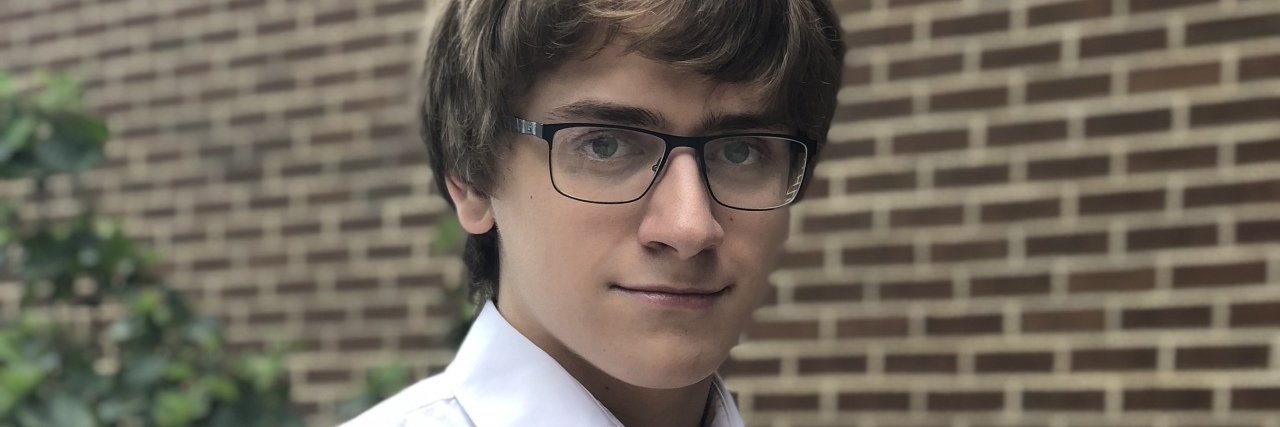Why My Son With Autism Thinks Friendship Is a Risk
Editor's Note
This story has been published with permission from the author’s son.
Wiki defines risk as, “a situation involving exposure to danger.” Most of us want to avoid danger. An “Enter at Your Own Risk” sign posted next to a rickety old bridge, might make most of us non-thrill seekers avoid a possible plunge to our death, so we find another way to get where we are going. My son Ryan is a practical, non-risk taking guy and that is why there is no way he would cross that bridge. He would absolutely take a safer, alternative route and skip the bridge (and the risk) altogether.
Last week, when we were talking about friends and his desire to be “anti-social,” as he calls it, I asked if that’s what he wants or if that’s what is easier. He took a minute to gather his thoughts, “I don’t know if it’s worth the risk,” he said as he stared out the car window. My heart felt both happy and sad. I was thrilled he was able to articulate his feelings so well, and sad that at almost 17, my son doesn’t understand the joy and wonder of what it means to have, and be, a friend. To my son, trying to make a friend feels almost as dangerous as that rickety old bridge, so he finds other ways to get where he needs to go.
I tried to explain to Ryan that opening yourself up to friendship does make you vulnerable, but having someone to confide in, to stand by you, to understand you and to love you, is worth the risk. Not ever really having that kind of friendship experience, he wasn’t convinced. I tried a different approach.
“Look at all the risks you have taken that have paid off. Musical theatre, select chorale groups and music camp.” Still staring out the window he said, “That’s taking a risk at something I am good at. I’m not good at people.”
Understanding people and knowing who to trust and who is worth the risk is like crossing that rickety bridge with a blindfold; dangerous, scary, uncertain and in his mind, not worth it. Maybe this is why in most social settings he finds an alternate way around. Sitting alone, avoiding parties, not staying overnight at music camp and spending as much time alone as he can helps him to avoid the dangers of social blunders, language mishaps and misreading the emotions of others. One wrong misstep, one weakened board and down he goes. Crossing that bridge is just not worth the risk.
At least not yet.
My son’s words struck my heart, and sat with me the rest of the day. I was overcome with both sadness and pride. Sadness that making a friend feels so risky to him and pride for not only his ability to recognize the risk of opening yourself up to someone, but also that he felt safe enough to open himself up to me.
Even though my son knows this bridge is very old (he points out my gray hairs regularly), he knows I am reliable and will always hold him up. One day, there may be someone on the other side of that bridge that compels my son to ignore the “Enter at Your Own Risk” warning and he takes a risk and crosses that bridge, but until then, I will take his hand and help him find another way around.

